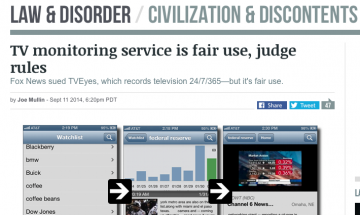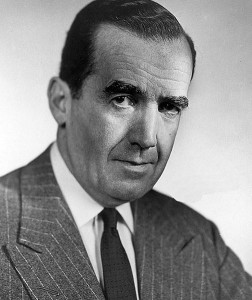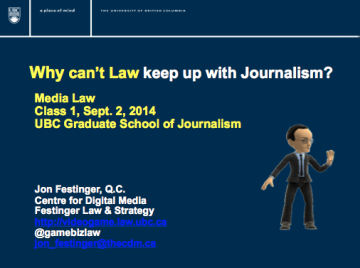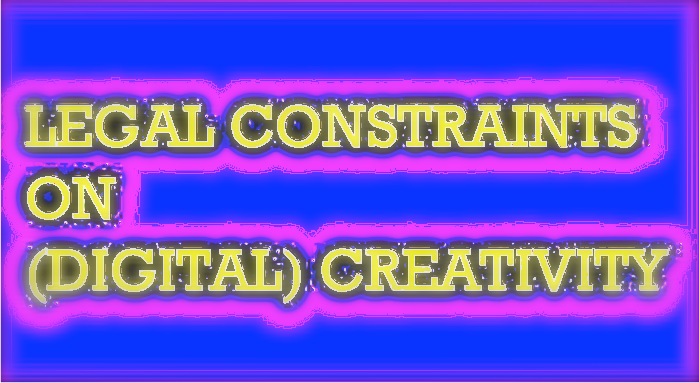In this lesson, Jon went over law school…in a day!
How is law made?
Through statutes (provincial and federal) –> government-made
eg. Consumer Protect Act (provincial) and Broadcasting Act (federal)
Through the common law –> judge made
Do statues supersede judge-made law or does it work the other way around?
TRICK QUESTION! It’s a dialectic where legislation changes what judges do (for example, mandatory minimum sentences), but THEN judges get to interpret the next statute…
What kinds of laws are there?
Criminal –> Queen v. Person, eg. R. v. Oakes
Civil –> Person v. Person, (or company) eg. Starson v. Swayze
Administrative law –> decision-making authority delegated to tribunal, eg. Lipp v. Maverick’s Sports Lounge (BC Human Rights Tribunal decision)
Constitutional law –> Who gets to make the law and the limits of their power, eg. Constitution Act of 1867 (see section 91 and 92 for breakdown of federal and provincial powers) and Charter of Rights and Freedoms
Enforcement of law comes through judges and juries. Juries are finders of fact and judges are finders of law and fact (when there is no jury). It is because of the jury that media contempt of court exists and is so important. In Canada, the right to a fair trial supersedes the right to free speech. (Our freedoms are not absolute – they are as can be demonstrably justified in a free and democratic society – read R. v. Oakes above for more on this).
There is a federal court system and a provincial court system.
What legal subjects should we are about? Why?
Constitutional Law: Charter, division of powers
Contracts: “law of the marketplace,” good examples of judge-made law
Criminal law and procedure: contempt of court, defences, mens rea, actus reus, standard: BARD (beyond a reasonable doubt), sentencing
Property Law: trespass, intellectual property (it’s a related concept)
Torts: Civil wrongs, again – lots of judge-made law, negligence, nuisance, defamation, privacy, think of it as injury to another person
Transnational Law: conflict of laws, what law applies where and how (important as a foreign correspondent)
Administrative Law: decision-making delegated to quasi-judicial authority, regulatory bodies like the CRTC
Business Organizations: why are companies people?
Intellectual Property: copyright, moral rights, fair dealing, fair use
Jurisprudence: legal philosophy, the rule of law
Ethics and Professionalism: the culture around law
If you want some more information, this is an excellent (and free) document about our legal system and structure in Canada.






 Legal Constraints on (Digital) Creativity
Legal Constraints on (Digital) Creativity